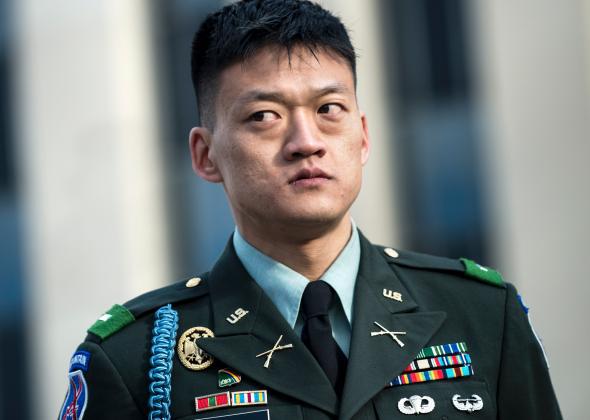“Who is Dan Choi without ‘don’t ask, don’t tell’?”
That’s the question Gabriel Arana, an editor and reporter at The American Prospect, tries to answer in his bracing new long-form piece on the fate of the discharged solider who was the face of the DADT repeal movement. From Choi’s first national appearance—on the Rachel Maddow Show—in March 2009 until the official repeal in December 2010, he could be seen regularly on TV and in magazine profiles, discussing his experience as a closeted gay solider and his decision to become an activist. With his Iraq credentials and his wholesome religious background, Choi was a natural spokesman for the movement.
But as Arana discovers, Choi had trouble finding a new script once his cause was accomplished. Increasingly isolated from family and old friends in the years since the repeal, Choi began to exhibit less savory character traits, like substance abuse and melodramatic narcissism, culminating in a total nervous breakdown during a rather routine civil disobidence case in March of 2013. Arana reflects:
Dan’s self-narrative is under constant revision, which is a way of saying I’m never sure whether to believe him, if the version of events he’s presented is the final. When we first met, he told me he pursued the case because if the First Amendment doesn’t apply at the foot of the White House, it doesn’t apply anywhere. Another time, he told me that he wanted to lose so the proceedings could make it into case law; once a suit is appealed, it is woven into the legal record, becoming part of the constellation of rulings that guides lawyers and judges. Dan wanted to be among the stars.
For a fine exploration of what can happen after a social justice figure’s star dims, take a few minutes to read Arana’s piece.
